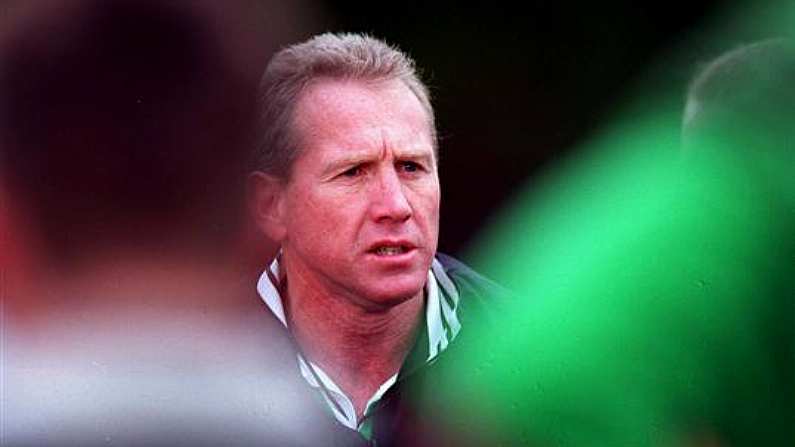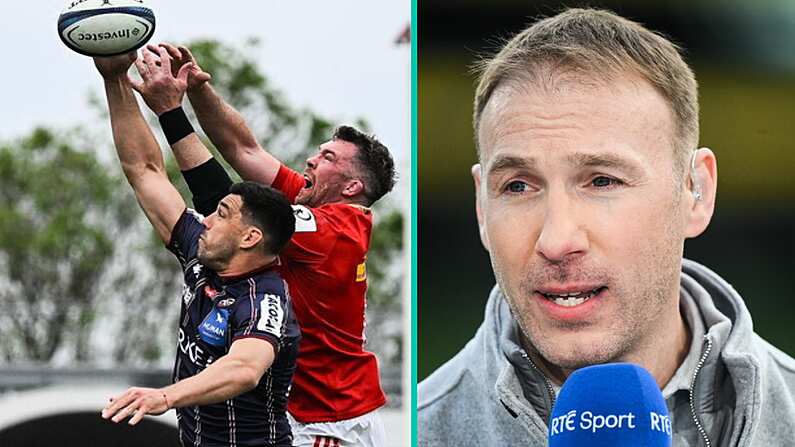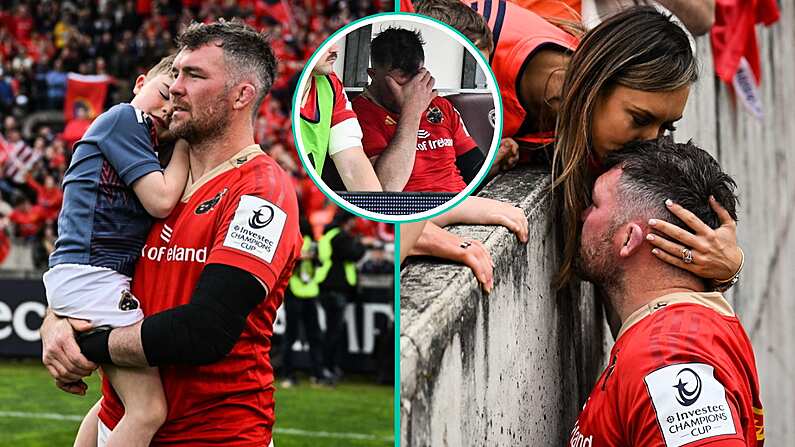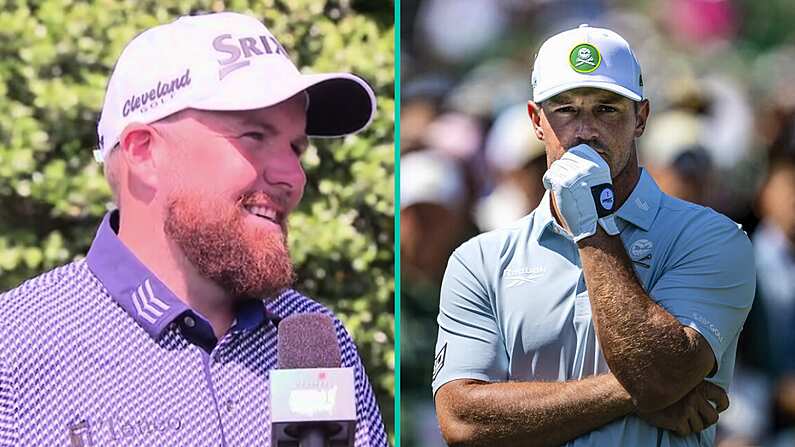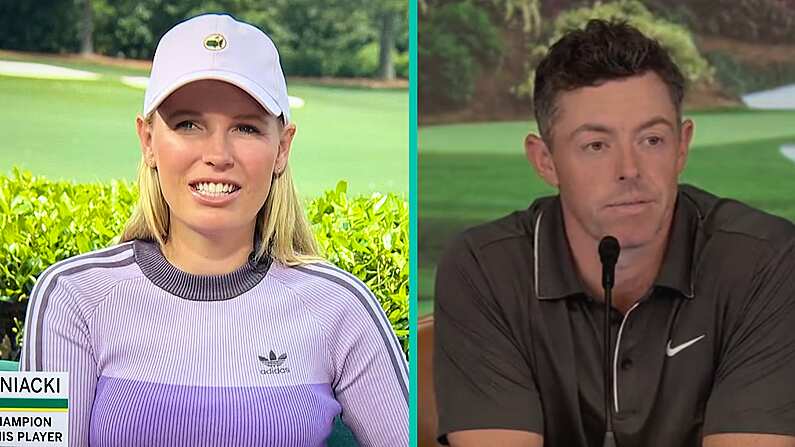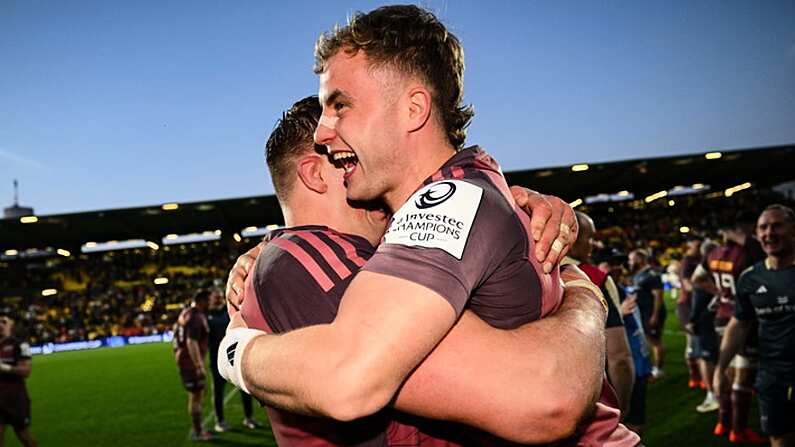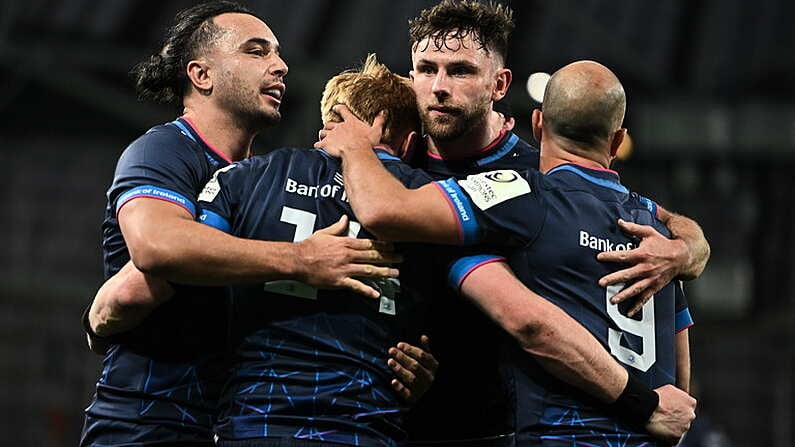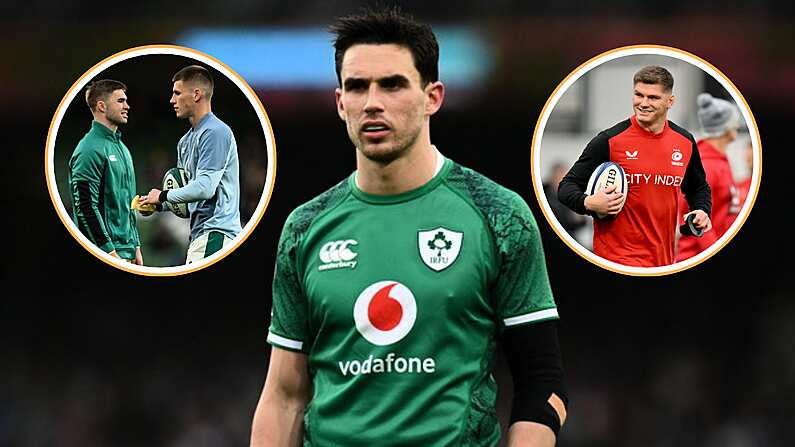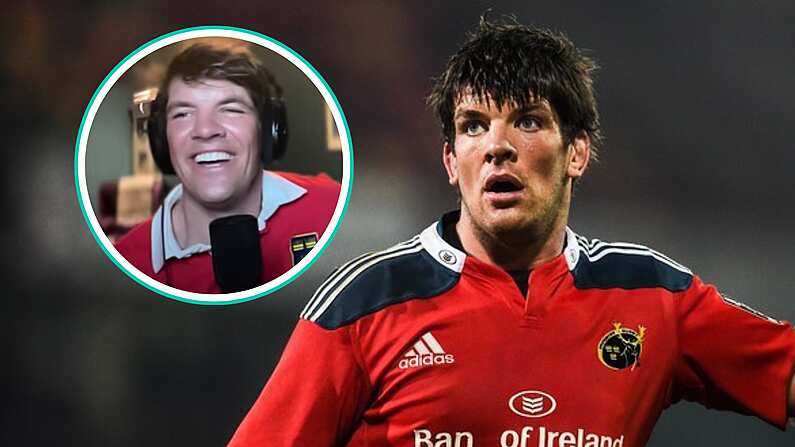If the question 'Name any Irish coach since 1990' ever came up on Pointless, then the name of Murray Kidd would probably be your best shout for a pointless answer.
The first Ireland coach of the professional era, he assumed the job in November 1995 and was abruptly replaced by the rather more qualified but hardly any more successful Brian Ashton on the eve of the 1997 Five Nations.
He made his name as a coach in the then highly popular All-Ireland League, winning an AIL title with Garryowen in 1991-92. On his appointment, he was billed as a 'Kiwi coach who takes no nonsense'.
In our weekly books podcast, we spoke to Tom English about his new book 'No Borders: Playing Rugby For Ireland' (buy here). Perhaps the most entertaining section of the book is that dealing with the 1990s, when the Irish rugby team descended to what Neil Francis might term South Sea Island standard.
Read more: Balls Remembers: A Profile Of The First Leinster Heineken Cup Team In 1995
The players' recollections of Murray Kidd and his personal charm were especially salty. It was true that Kidd took no nonsense. His training sessions were memorable for their allegedly unsophisticated brutality.
Nick Poppelwell, who was of the view that his greatest asset when seeking the Ireland job was his New Zealand passport, marvelled at how he managed to combine being both a poor coach and an unpleasant character.
It was rare that such a combo went hand in hand. The saving grace for many a poor coach was that at least they were perceived as nice fellas. That was the essence of decentskinsmanship. Not so with Murray, apparently.
Murray Kidd. Oh good God, yeah. In fairness, he had a New Zealand passport and if you had one of those at that stage it was enough. As well as being poor, he was unpleasant. You put that mixture together and it's hard to stomach.
Victor Costello described him as 'fucking angry' (that was the plus side) and 'limited'. When reminded of his name, Niall Woods sighs 'Jesus, yeah, Murray Kidd...' before at least allowing that he was a nice enough guy if not exactly a barrel of laughs.
And all the players remembered that he had a charming epithet by which he addressed everywhere member of the squad - 'Fuck Knuckle'. English describes how, without fail, every player he interviewed immediately recalled being addressed as 'Fuck Knuckle'.
Are we allowed to say that? Yeah, he used to call everybody 'Fuck-Knuckle'. That's what he used to call players. It was amazing. I think it was Nick Poppelwell who told me that first. But as I was doing the interviews for the Murray Kidd section, I kept on asking the players who played under him, 'he called ye a name didn't he?' And they all went immediately, 'yeah, Fuck Knuckle'.
After two opening wins against Fiji and the USA, he guided Ireland to bottom spot in the 1996 Five Nations, though they avoided a whitewash to a victory over a similarly rubbish Wales in Lansdowne Road.
Wales's surprise victory over France in the Cardiff Arms Park on the last day denied the French the Grand Slam and the championship and condemned Ireland in last place, though no one over here much cared at that point.
His reign ended after a 37-29 loss at home to Italy in January 1997.
Kidd's reign is now almost wholly forgotten. There is now a whole new generation of rugby fans to whom his name means nothing.
But he has his defenders. Donncha Ryan, who played under Kidd at Sunday's Well, said that the forgotten Ireland coach had been instrumental in his development as a player.
And Keith Wood, who was hooker on Kidd's AIL winning Garryowen team of 1991/92, is a big defender of his former boss.
Keith Wood played for Murray Kidd at Garryowen. He liked Murray Kidd. And he had sympathy for Murray Kidd because Murray Kidd was thrown into that job and wasn't ready for it. He was a club coach who had won an All-Ireland League with Garryowen but international rugby had moved on so quickly that Murray Kidd was out of his depth. And Keith has sympathy for him. You're asking a guy to do a job that he's probably incapable of doing. And he's coming up against coaches who have more money and organisation and expected to a do a job.
Throughout that period we were just not at the races. And from farce comes entertainment, to be brutal about it. And there was an awful lot of farce in the 90s and a lot of it was very entertaining.
Listen to the podcast below:
[soundcloud url="https://api.soundcloud.com/tracks/234946517" params="auto_play=false&hide_related=false&show_comments=true&show_user=true&show_reposts=false&visual=true" width="100%" height="450" iframe="true" /]


